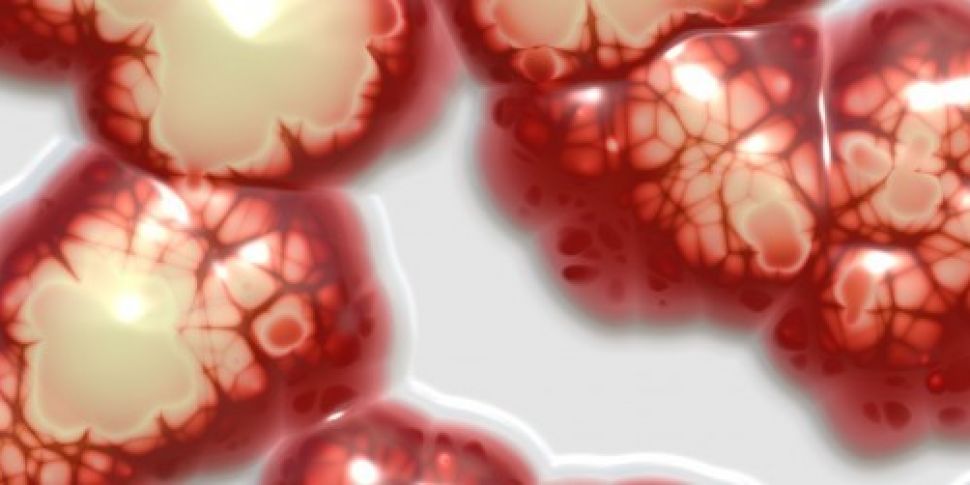On Thursday, Pope Francis will meet the largest gathering of people with Huntington's Disease (HD) at the Vatican.
This week’s event, called HDdennomore (Hidden No More), was planned as thanks to families from Colombia, Venezuela and Argentina who, more than 25 years ago, provided the samples that led to the identification of the HD gene.
It will be the first major international public recognition of a disease from which as many as a quarter of a million Catholics also suffer.
HD is a hereditary disease, which there is currently no cure for.
Joining congregants there will be Anne, whose husband Donal has had HD for the last 20 years. He is now in full time care.
"Huntington's causes physical, cognitive and emotional changes in a person," Anne told Johnathan Healy on The Pat Kenny Show. "It's a very very slow disease, which is good, but in another way, it tears families down year after year after year."
Anne explained how her husband began forgetting "the simplest things" in his early thirties. Then, he began developing physical symptoms, including involuntary movements and balance issues.
"He has to be washed, fed, dressed, changed. He cannot communicate in any way. The only thing that he can do right now is laugh or cry.
"He is locked in. Because there is an element of dementia with HD, we don't know what his rationale is. We have no idea what level of comprehension is there."
How does it develop?
HD is typically inherited from a person's parents, with 10% of cases due to a new mutation. The disease is caused by an autosomal dominant mutation in either of an individual's two copies of a gene called Huntingtin.
This means a child of an affected person typically has a 50% chance of inheriting the disease.
Clinical psychologist Dr Nial Pender explained what is affected biologically with HD.
"Slowly over time, the gene changes brain cells deep in the middle of the brain. Initially it affects aspects of movement which is the most common feature of the conditions - patients are very restless and twitchy.
"Gradually, the cells around that area begin to die off and it affects other skills."
Anne and her husband have three adult children, each with a different status: two of them undertook the predictive genetic test with one receiving a favourable result and the other finding out that they have the gene and will eventually develop the disease.
Their third child does not want to be tested.
"We had these children before we knew Huntington's was in the family. We never knew HD was in the family. By the time the official diagnosis came, my children were 5, 7 and 9.
"Had I known HD was in the family, I would have made a much more informed decision as to whether to have children or not, but in our case, we have no choice.
"As a parent, I have to sit back and wait, and wait, and wait, and wait. It's soul destroying."
Despite the hardship, Anne said the diagnosis has made her children who they are today.
"They've never used HD as an excuse to say 'poor me, why me?' They absolutely push themselves and they travel the world.
"Life is for living, and that's what they're doing."
When asked what's next for her husband, Anne said:
"In a word? Death. There is no hope of recovery. There is no hope of regaining functions which he has lost.
"I see no joy in his existence. He is simply existing."
How prominent is it in Ireland?
Dr Pender told the show it was hard to establish just how many people in Ireland have the disease.
"We estimate probably somewhere between 700 and 1,000 [people] - it's probably more than that," he said.
Dr Pender said HD is under-researched, with the purpose of the meeting in the Vatican to bring a greater level of awareness to the suffering of the persons affected.
"There's no clinical trials going on in Ireland at the moment. We have no rehabilitation centres or treatment centres. There's no opportunity for families to come forward and look for help.
"Once they get a diagnosis, there's very little there. It's just about managing the symptoms."
Will there ever be a cure?
Dr Pender said the disease has brought together specialists globally in terms of searching for a cure.
"There's a huge amount of work going on [...] There's a great deal of work looking at gene silencing, looking at ways of slowing down the gene, stopping it from becoming active. It's very very complex.
"I think many of us are hopeful that we will see a breakthrough in this generation [...] But we need to look at drug treatments to manage the disease, because it is a relentless disease."









